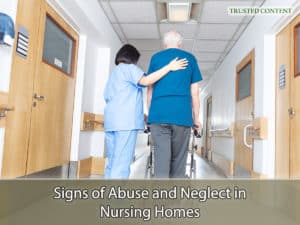Considerations When Finding a Nursing Home For Your Loved One in Ontario, California
Navigating the complexities of choosing the right nursing home for an elderly loved one in California can be overwhelming. With numerous facilities available, ensuring a safe and comfortable environment for your loved one requires careful research and informed decision-making. Not all nursing homes provide the same quality of care, and some facilities can pose serious risks to the health and well-being of your family member. It’s important to vet potential nursing homes thoroughly and understand the regulations that govern their operation. This guide provides essential considerations for families seeking the best care for their loved ones, including a comprehensive review of types of senior living facilities, nursing home regulations, and the key factors that help distinguish a high-quality facility.
The Basics of Nursing Homes
Nursing homes provide around-the-clock medical care for individuals who can no longer care for themselves due to health conditions. They often include specialized services like memory care and physical therapy. Residents typically require assistance with most or all daily activities and need close supervision for their health and safety. Nursing homes have trained medical staff on-site at all times to address residents’ health needs. It’s important to find a facility that provides personalized care plans and has experience dealing with the specific conditions affecting your loved one. Consideration should also be given to the range of services available, from physical therapy to memory care, and the overall reputation of the facility.

Regulations for Nursing Homes in California
Regulations for Nursing Homes in California
Role of the California Department of Public Health
In California, the Department of Public Health regulates and licenses nursing homes, ensuring they meet certain standards. The licensing process includes periodic inspections, staff training requirements, and adherence to patient safety protocols. Reviewing inspection reports available on their website can offer critical insights into a facility’s cleanliness and safety. These reports detail deficiencies identified during inspections and can highlight patterns of neglect or abuse. Nursing homes that repeatedly fail to meet state standards can lose their licenses, making it important to avoid facilities with a history of violations. Families should also verify a facility’s compliance with federal standards if they accept Medicare or Medicaid.
The California Department of Public Health also provides tools that contain valuable information about the quality of care and safety practices at nursing homes. These are publicly available online and include details about staffing levels, facility cleanliness, and health violations. Reviewing this information can give families a clear picture of how well a nursing home adheres to state regulations. In addition, facilities are required to make their most recent inspection reports available upon request. Families should be proactive in obtaining this information and using it to guide their decision-making.
Medicare and Medicaid Certification Requirements
Medicare and Medicaid certifications are crucial if your loved one plans to use these programs for payment. Confirm that the nursing home you’re considering holds both certifications. These certifications ensure that the facility meets federal quality standards and provides the necessary level of care for its residents. Medicare certification specifically covers short-term stays following hospitalization, while Medicaid certification can help cover long-term care costs for eligible residents. Be sure to understand what services each program covers and whether the facility provides additional care not included in these programs.
Key Factors to Consider When Choosing a Nursing Home
Medical Services and Specialized Care
Check if the facility offers specific services like memory care or physical therapy, as well as access to trained medical staff 24/7. Nursing homes should be equipped to handle residents’ unique medical needs, from wound care to chronic disease management. Specialized care services like speech therapy, occupational therapy, and respiratory care can significantly improve residents’ quality of life. Ensure that the facility can coordinate with your loved one’s primary care physician and has a system for managing medications.
Location and Accessibility
Proximity to family and friends is essential for regular visits. Choosing a conveniently located nursing home helps loved ones stay connected and prevents feelings of isolation. Studies have shown that residents who receive regular visitors are generally happier and healthier. The location should also be convenient for family members to attend care meetings and communicate with staff about their loved one’s needs. Additionally, the facility should be easily accessible, with adequate parking and accommodations for those with mobility issues.
Amenities and Activities
Amenities such as recreational and wellness programs can significantly enhance residents’ quality of life. Social interaction, exercise, and entertainment help prevent depression and maintain cognitive function. Common amenities include exercise classes, movie nights, gardening clubs, and craft workshops. Some nursing homes offer specialized programs like pet therapy, music therapy, and religious services. Contact the facility directly for a comprehensive list of available services and ensure they match your loved one’s interests and needs.
Staffing Levels and Turnover Rate
A high staff-to-resident ratio and low turnover often indicate a well-managed, safe environment. Staff members should be available around the clock to assist residents and provide immediate care during emergencies. It’s essential to understand the qualifications and training of the staff, as well as the facility’s policies on continuing education. Frequent staff turnover can lead to inconsistent care and affect residents’ emotional well-being. Look for facilities where staff members are consistently available and where residents can form lasting relationships with caregivers.
Quality of Food and Nutrition
Ensure that the nursing home provides high-quality meals, offers diverse options, and accommodates dietary restrictions. Malnutrition and dehydration are common problems in nursing homes and can have serious health consequences. The facility should offer a variety of meals that meet residents’ dietary needs, whether vegetarian, gluten-free, or diabetic-friendly. Additionally, inquire about the availability of snacks between meals and the flexibility of meal times for residents who may have varying appetites.
Evaluating Nursing Homes in California
Conducting In-Person Visits
Visit nursing homes in person to observe staff-resident interactions and general cleanliness. Online descriptions can be misleading, so trust your own observations. Pay attention to the demeanor of residents and whether they seem well-cared for and content. The cleanliness of common areas, dining rooms, and residents’ rooms can also reveal the facility’s attention to hygiene. Speak with staff members about their work environment and how long they’ve been with the facility. A warm, welcoming atmosphere is often a good indicator of quality care.
Seeking Recommendations and Reviews
Seek recommendations from others with loved ones in nursing homes and read online reviews. These insights offer a more complete picture of a facility’s quality. Ask for references from the facility itself and reach out to current or former residents’ families to learn about their experiences. Reviews on independent websites can also provide a sense of how the facility addresses complaints and handles resident concerns. Social media groups focused on elder care can be another valuable resource for unbiased opinions.
Trusting Instincts
If something feels off or residents appear unhappy, consider other options. Trust your instincts when choosing a facility for your loved one. If a facility seems defensive or evasive when answering your questions, it may be a sign of deeper issues. Pay attention to subtle cues, like staff body language or the behavior of residents, as they can reveal more than scripted responses. Ultimately, your comfort level with the facility is crucial in ensuring your loved one receives the best care.

Signs of Abuse and Neglect in Nursing Homes
Signs of Abuse and Neglect in Nursing Homes
Common Warning Signs
Signs of abuse and neglect include poor hygiene, unexplained injuries, depression, weight loss, and complaints of discomfort. Other red flags include changes in behavior, frequent falls, or a sudden decline in health. Family members should also be wary of staff members who discourage private conversations with residents or refuse to allow unsupervised visits. Financial abuse, such as unexplained charges or missing personal belongings, is another potential indicator of mistreatment.
Importance of Continuous Monitoring
Regular visits and communication with staff help identify potential issues early. Monitor your loved one’s well-being, especially during the first few months. Keeping a journal of visits, concerns, and observations can help track patterns and identify changes in behavior. Discuss any concerns with staff promptly and request a care meeting if necessary. Staying actively involved in your loved one’s care is one of the best ways to prevent neglect and abuse.
Role of Legal Assistance
An experienced lawyer can investigate and determine whether neglect or abuse is occurring and help secure compensation for victims. Elder abuse cases often involve complex legal issues that require a thorough understanding of California law. An attorney can gather evidence, interview witnesses, and work with medical experts to build a strong case. They can also guide families through the legal process, ensuring their rights are protected.

Considerations When Finding a Nursing Home For Your Loved One in Ontario, California
Considerations When Finding a Nursing Home For Your Loved One in Ontario, California
Choosing a nursing home for your loved one is a significant decision that requires thorough research and consideration. By understanding the different types of senior living facilities, reviewing inspection reports, and considering key factors like location, amenities, and staffing levels, families can make informed choices that prioritize safety and quality care. If you need help navigating this process or suspect neglect or abuse, Napolin Accident Injury Lawyer is here to assist you. With extensive litigation experience, we can help you secure compensation and ensure your loved one’s safety. Call us today at (909) 962-8415 for a free consultation.
